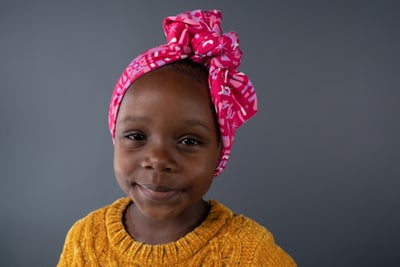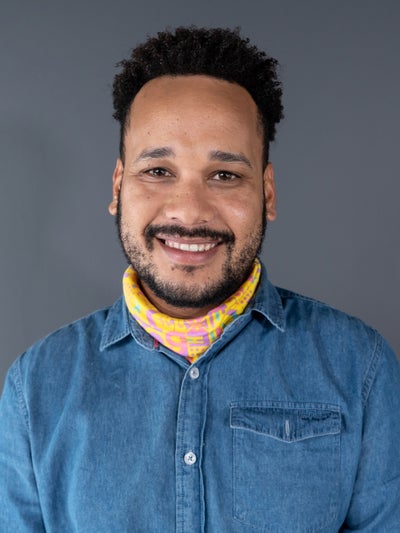How to Give Hope to SA’s Blood Cancer Patients this Sunflower Day
DKMS Africa and Pick n Pay are uniting South Africans in bringing hope to patients living with blood disorders and blood cancer as part of the annual Sunflower Day fundraising drive.
Studies have shown that hope is an important therapeutic factor when it comes to healing from and surviving illnesses such as cancer[i]. It is also thought to help patients achieve a better quality of life[ii]. For this reason, DKMS Africa and Pick n Pay are uniting South Africans in bringing hope to patients living with blood disorders and blood cancer as part of the annual fundraising drive, taking place on 16 September 2022.
Every 72 minutes, someone is diagnosed with blood cancer in South Africa and often a stem cell transplant is their only hope for survival. This is also the case for those living with other blood disorders like leukaemia, sickle cell disease and aplastic anaemia. “Immediate relatives like a biological mother, father and immediate siblings are genetically typed first to determine whether they are matches. However, only 30% of patients find matches within their family, with 70% relying on unrelated matches,” says Palesa Mokomele, Director of Corporate Communications at DKMS Africa, an international non-profit organisation dedicated to the fight against blood cancer and blood disorders.
The annual Sunflower Day is one of the organisation’s most important drives to raise funds and awareness. Through Pick n Pay’s support of the campaign, DKMS Africa is able to maintain a patient support fund to assist those who are unable to afford the costs associated with getting a transplant.
Mokomele says, “We also raise funds for education and creating awareness around the need for and the process of becoming a stem cell donor as well as to cover the cost of the HLA tissue-typing test involved in the recruitment of donors. All of these areas help to provide lifesaving treatments for people living with a blood disorder, but we can’t do it alone; we need organisations like Pick n Pay.”
How we can unite and give hope this Sunflower Day

Every year, Sunflower Day is celebrated in September to raise these funds. This is done through the sale of the popular Tubes of Hope (TOPEs) which will be on shelves from 1 August for R30 at Pick n Pay stores nationwide. “Pick n Pay has been an instrumental support when it comes to driving Sunflower Day over the past 19 years in order to help fight blood cancer and blood disorders,” says Mokomele.
Vaughan Pierce, Head of ESG: Pick n Pay says that they are excited to have their stores “United by Hope” again. “Since 2003 our stores get an annual burst of colour with the arrival of the TOPEs. They are a small symbol of how we can band together to bring hope to patients suffering from a blood disorder. With the support of our customers, we’ve been able to donate millions of Rand to DKMS to support the important work they do to diversify the donor base in South Africa.”
TOPEs will also be available at selected ICPA pharmacies. All proceeds from these sales go towards patients in need.
This year, the TOPE design comes in six colours, with the words “United by Hope” printed on them. “The design symbols for the TOPES all have different meanings,” explains Mokomele. “For instance, the swab design points to potential donors, while the compass represents DKMS’ global reach. The chain link is a symbol of unity, and the DNA helix represents the huge amount of research we undertake to help blood cancer patients.”
Urgent need to expand the donor base in SA

DKMS Africa is part of a global registry of stem-cell donors, but unfortunately, those of African descent are underrepresented. This is why there is a dire need for blood donors from ethnically diverse backgrounds. “What makes our work so necessary is that Black, Coloured, Indian and Asian blood cancer patients only have a 19% chance of finding a match, despite representing more than 80% of the SA population,” says Mokomele.
Registering as a stem-cell donor is easy and pain-free. All that is required is for three DNA swabs to be taken from the inside of the potential donor’s mouth and cheeks. After this, the donor is given a full doctor’s examination, which includes taking a blood sample. They are then asked to donate stem cells 30 days later. “There can be no greater gift than the gift of hope you will be giving someone suffering from a life-threatening blood disease by donating stem cells,” she urges.
If you are between the ages of 18 and 55 and in good health, you can register to become a donor at https://www.dkms-africa.org/register-now. “Now is the time for all South Africans to unite together and bring hope to the nation,” concludes Mokomele.
[i]https://www.sciencedirect.com/science/article/pii/S0885392413001097


